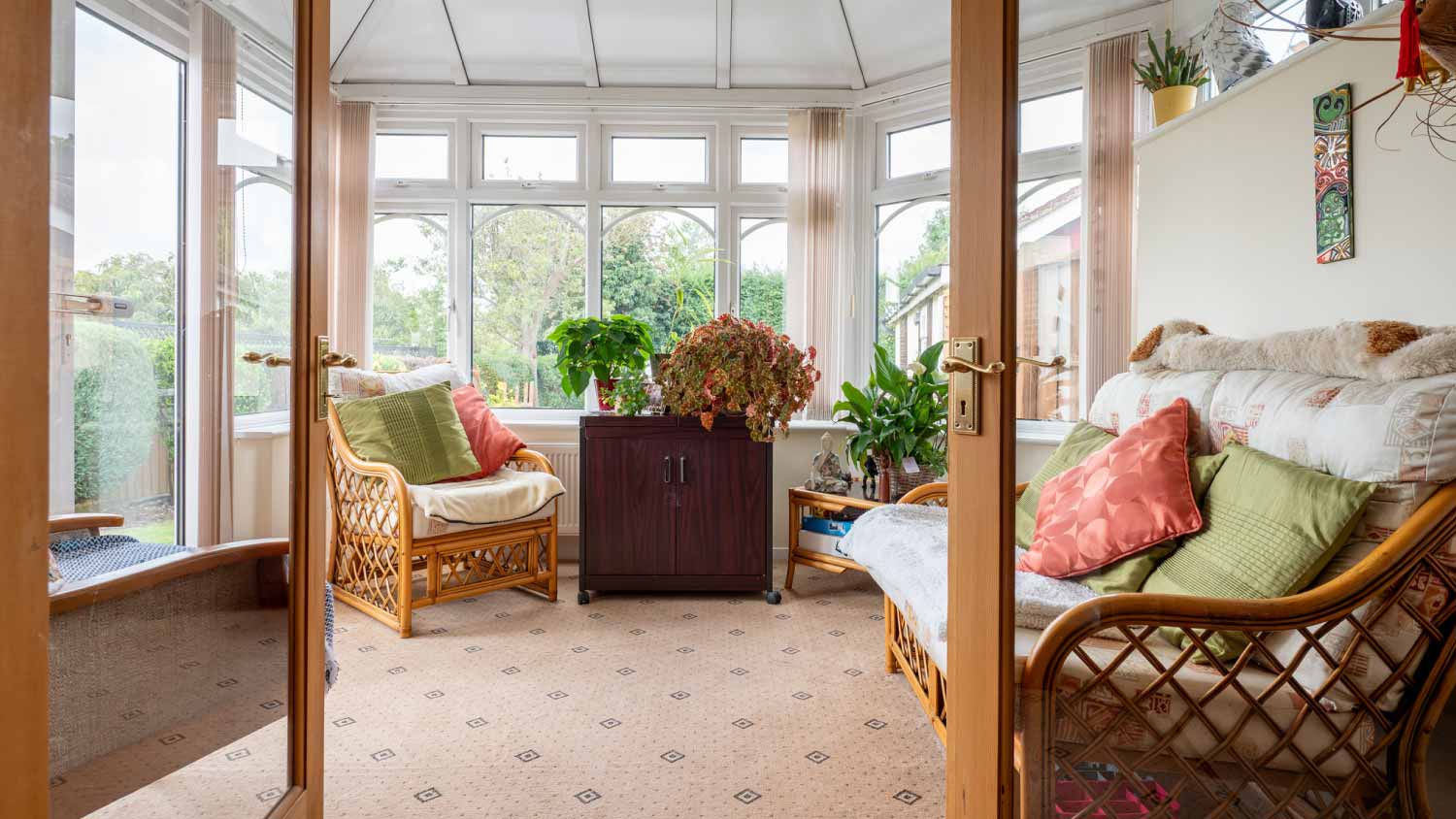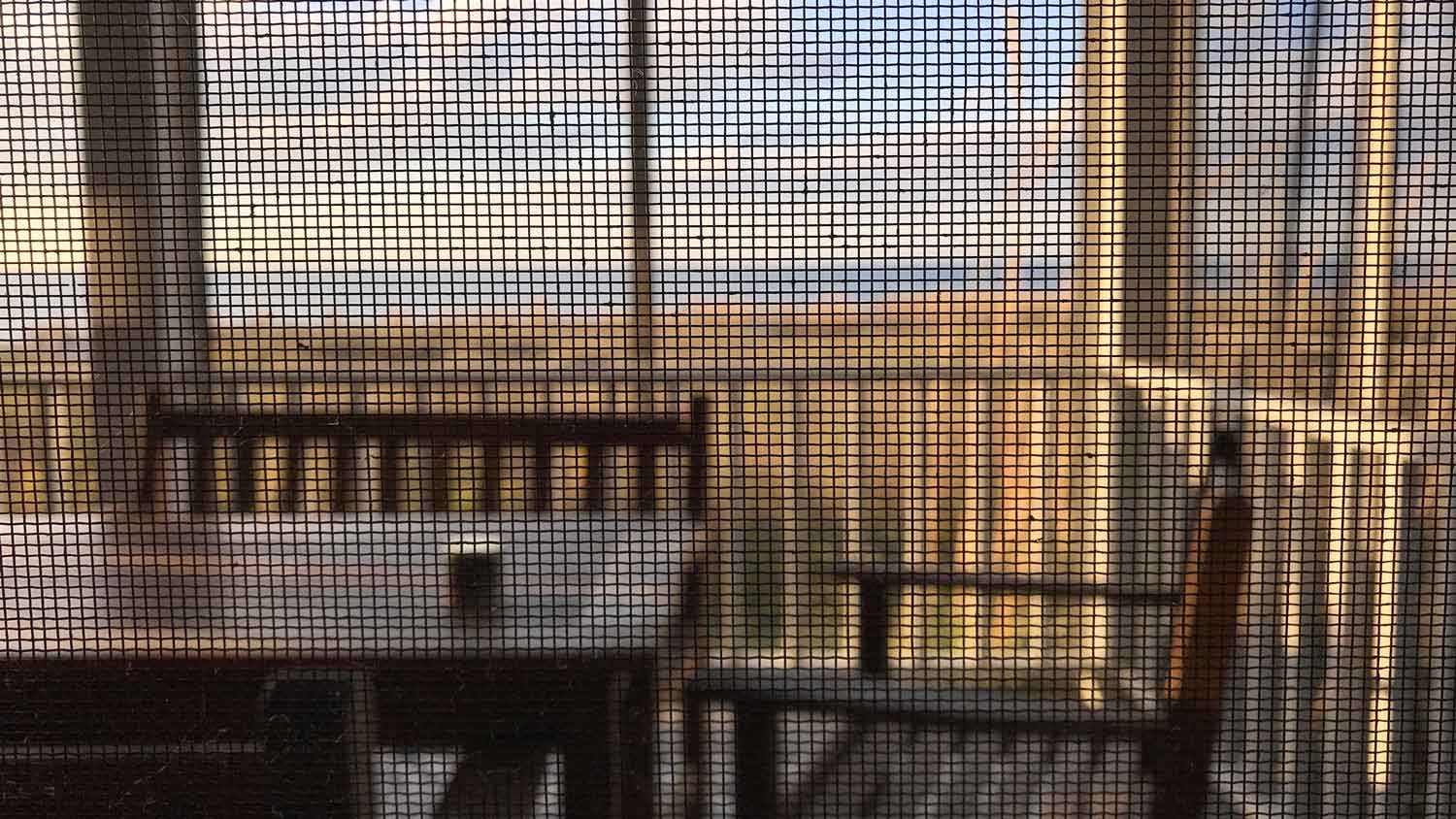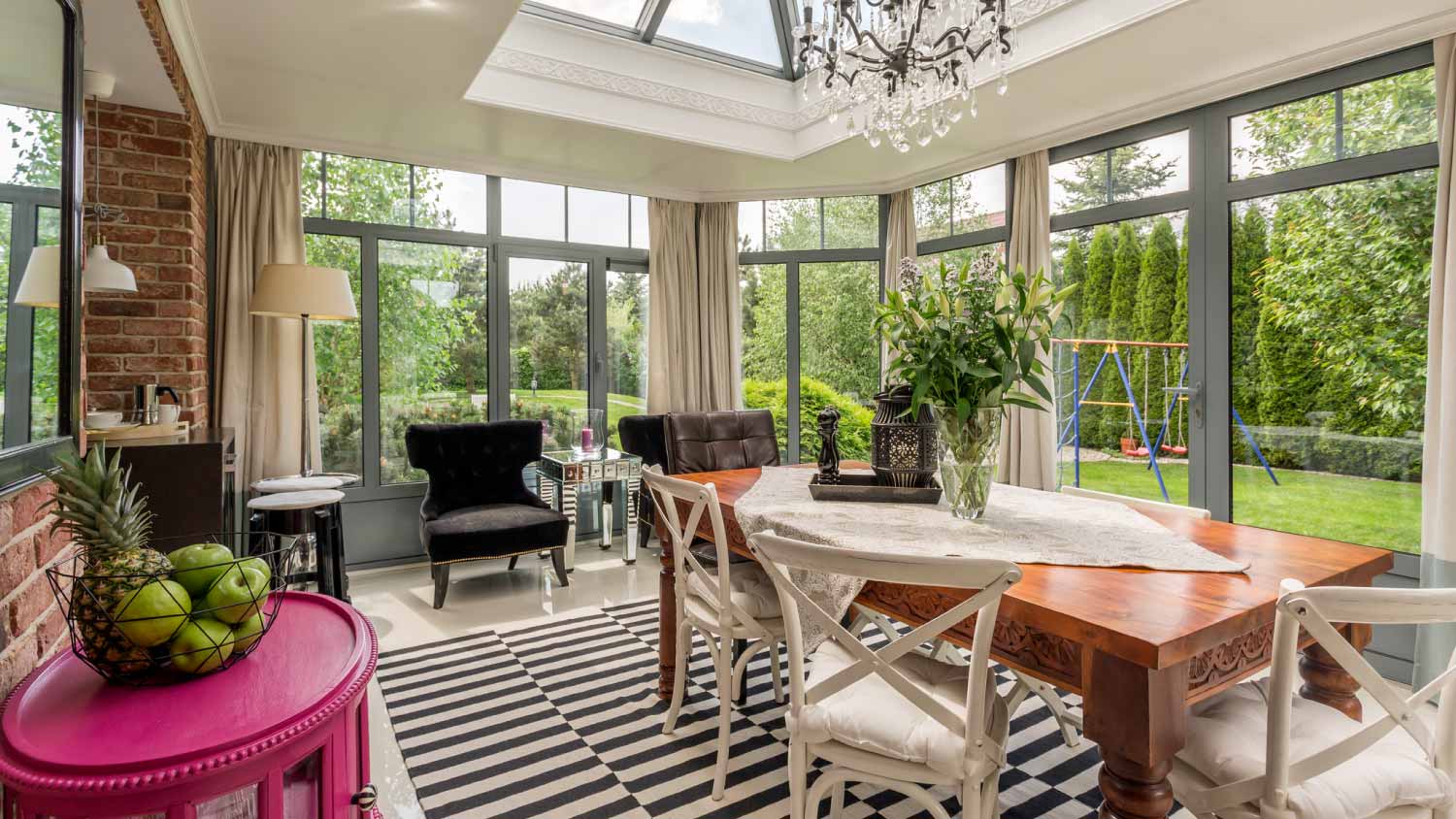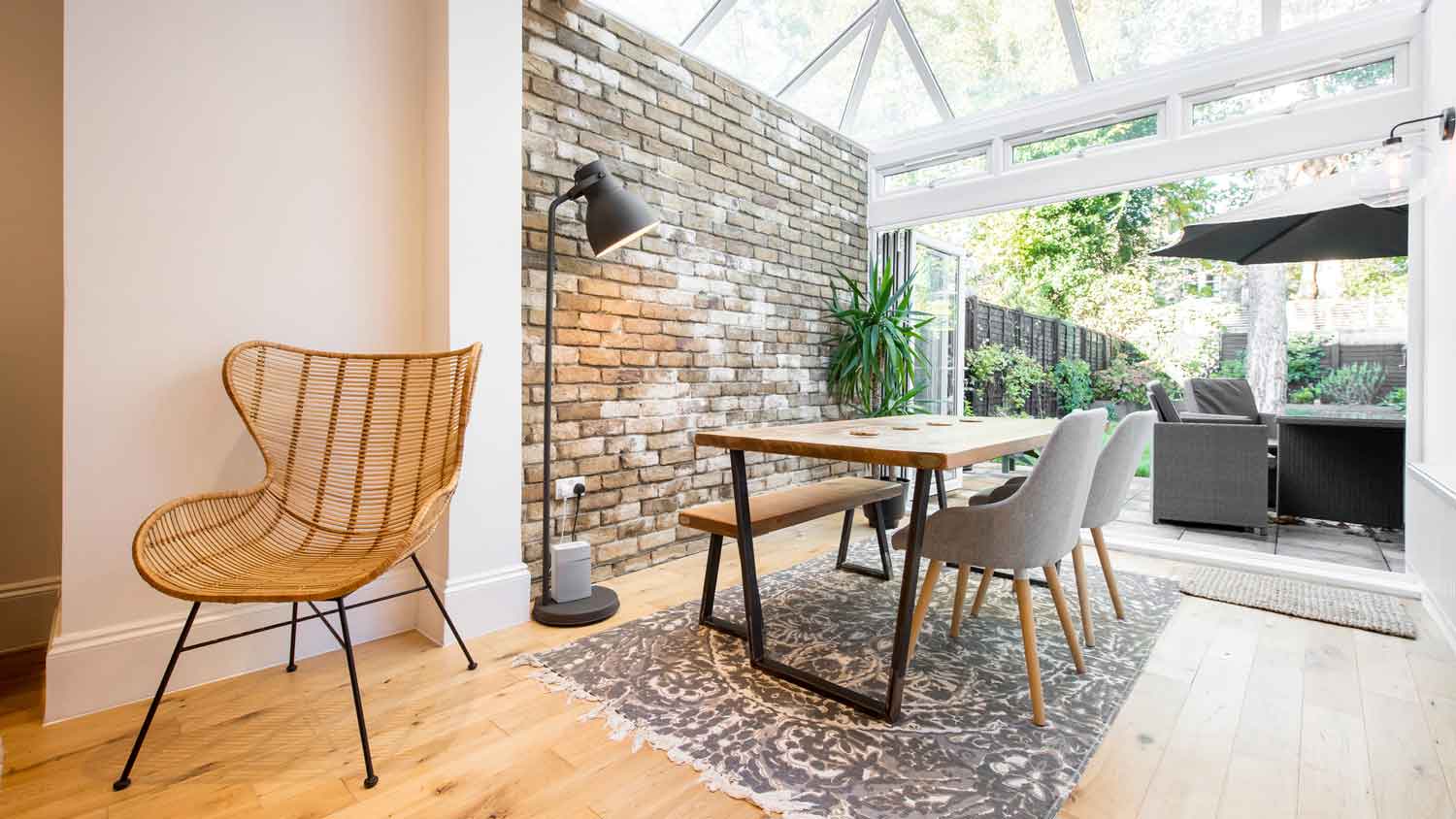
Love soaking up sun but can’t stand the bugs? Learn how much a Florida room addition costs and what factors influence the price to get the best of both worlds.
Lift the shades on what makes these screens worthwhile


When comparing the different types of screens for porches, it can be hard to tell which is the best for your needs. Fiberglass, the most common type of material, and aluminum are the most affordable, but a metal screen could be a better fit for your needs. Get the rundown on the screen materials you can choose from and the pros and cons for each.

Fiberglass screens are the most popular screen porch options for homeowners to keep little buggers out. They come in various colors and won’t rust, corrode, or crease easily. It’s also available in extra-fine mesh, also known as the no-see-um material, which prevents smaller bugs from getting in than their standard counterparts.
Since it doesn’t easily dent or crease, they’re great if you are DIYing screen installation to save money on labor fees when hiring a local sunroom contractor to build your porch. Plus, if you’re looking for a screen that won’t dent your wallet, they’re also a budget-friendly option. However, fiberglass porch screens are vulnerable to sharp objects (like claws) and can easily rip and tear. Homeowners typically spend $0.15 per square foot on fiberglass screens.
| Pros | Cons |
|---|---|
| Cost-efficient | Rips and tears from sharp objects |
| Doesn't rust, corrode, dent, or crease | UV rays can cause it to fade over time |
| DIY-friendly | Screens need annual replacement |
| Available in multiple colors | Not good if you have dogs or cats |
Best for:
Homes in moderate climates
Protecting against insects
Homeowners looking for a low-maintenance option
If you’re looking for an option that’s a little more pet-resistant and can hold its own against direct sunlight, then polyester screens are always an option. These screens are vinyl-coated, meaning they have a protective coating that makes them more resilient to insects, debris, dust, tears, and moisture. They’re also resistant to rust and corrosion but are more pricey than fiberglass, averaging around $0.55 per square foot.
| Pros | Cons |
|---|---|
| Durable and long-lasting | Can be pricey |
| Resistant against rips and tears | Less visibility |
Best for:
Homeowners with pets
Homes in hot climates
Maintaining privacy
If you’re looking for a type of screen for porches with noteworthy visibility and can withstand high winds, you might be interested in aluminum. These porch screens are durable and aren’t prone to sagging which can increase their lifespan. They can rust and corrode if not properly coated and dent if hit by a heavy object. Aluminum screened-in porches cost $0.27 per square foot.
| Pros | Cons |
|---|---|
| Excellent visibility | Not best in coastal areas |
| Doesn't sag | Hard hits can dent it |
| Durable | Pricer than fiberglass |
Best for:
Homes in windy climates
Areas where fire safety is a concern
Homeowners looking for minimal upkeep.
Solar screens might suit you if you want to build your screened porch somewhere exposed to direct sunlight. They’re made from fiberglass or polyester screens and are champs at blocking sunlight and reducing the heat and glare that comes with it. They typically use dark mesh to block UV rays, making them effective privacy screens. A screen that keeps the bugs, lookers, and sun out? Yes, please. Solar screens cost $2 to $8 per square foot. If you’re interested in the pros of solar screens but not the price, there are some ways you can winterize your screened-in porch that give you similar results for less.
| Pros | Cons |
|---|---|
| Designed to limit sunlight | Decreases natural light |
| Keeps porch cooler | More expensive than standard screens |
| Works as a privacy screen | Difficult to see outside at night |
Best for:
Homes in hot and humid climates
Homeowners looking for increased privacy
Energy-efficient homes
High-end metals such as brass, copper, bronze, and stainless steel screens are great if you want your screen to fit your home’s aesthetic. With their vibrant color, they can boost your curb appeal, hold their own when placed under tension, don’t wear away from friction, and are long-lasting. If curb appeal is important to you, tons of screened-in porch ideas (or sunroom ideas if you’re looking for something more extravagant) can make your enclosed space shine.
You can expect to pay between $0.85 to $6.50 per square foot depending on the type of metal used. Bronze and stainless are on the lower end of the price spectrum ranging between $0.85 and $1 per square foot while brass and copper range between $6 and $6.50 per square foot.
| Pros | Cons |
|---|---|
| Long-lasting when properly maintained | Expensive compared to standard screens |
| Can boost curb appeal | Discolors or fades over time |
| Doesn't rust or damage easily | Challenging to install |
Best for:
Homes in coastal areas or hot climates
Homeowners seeking aesthetic appeal
Maintaining longevity
Choosing the best porch screen material is a personal decision based on your specific needs and uses. If durability is a primary consideration, materials like vinyl-coated polyester and high-end metals offer superior strength and resistance to wear. These types of screens for porches are ideal if you have pets or kids and reduce how often you'll need to rescreen your porch.
Corrosion resistance is crucial if you live in coastal or humid environments, making aluminum and stainless steel excellent choices due to their natural resistance to rust. If you live in a hot climate, solar screens provide the best defense against UV rays and heat to enhance comfort and energy efficiency.
Aesthetic appeal and maintenance requirements are also important factors. High-end metals add a touch of elegance and require minimal upkeep. Fiberglass offers good visibility and is a cost-effective option. Privacy needs can influence the choice as well, with solar screens offering enhanced daytime privacy.
From average costs to expert advice, get all the answers you need to get your job done.

Love soaking up sun but can’t stand the bugs? Learn how much a Florida room addition costs and what factors influence the price to get the best of both worlds.

Considering adding a screened porch to your home? Discover the average cost of a screened-in porch, depending on its size, location, and more.

While a solarium addition costs homeowners a fair amount of money, the return on investment is higher than most projects. Learn what affects the total cost and where you can save money.

Installing a sunroom on your home can boost value and add utility. Learn about the different types of sunrooms to get the most out of your home addition.

Discover the cost to install a conservatory to learn about average prices, key cost factors, and ways to save before starting your conservatory project.

Have you had the bright idea to brighten up your living space? What exactly is a sunroom in a house, and is it right for you? Learn more in this guide.